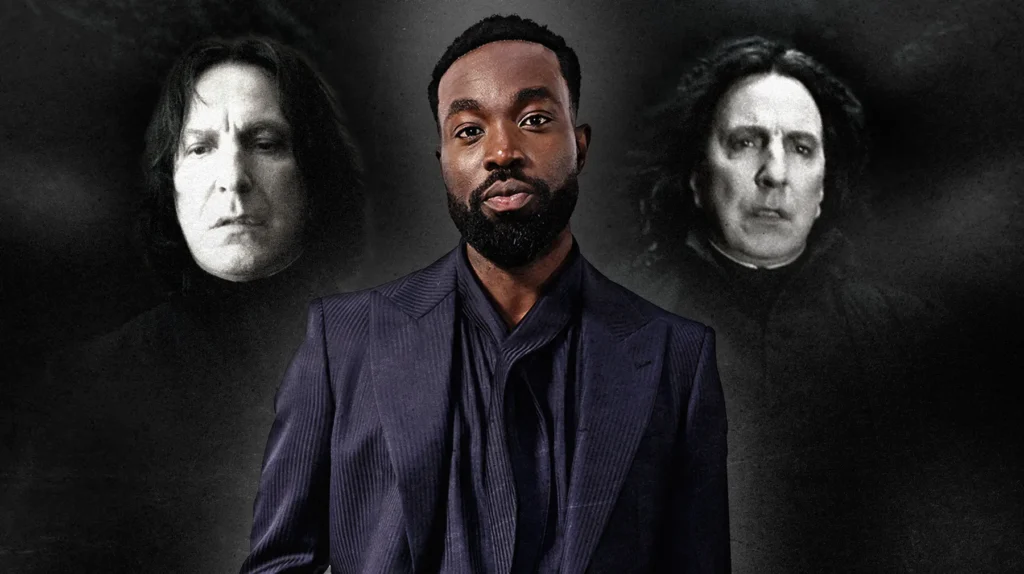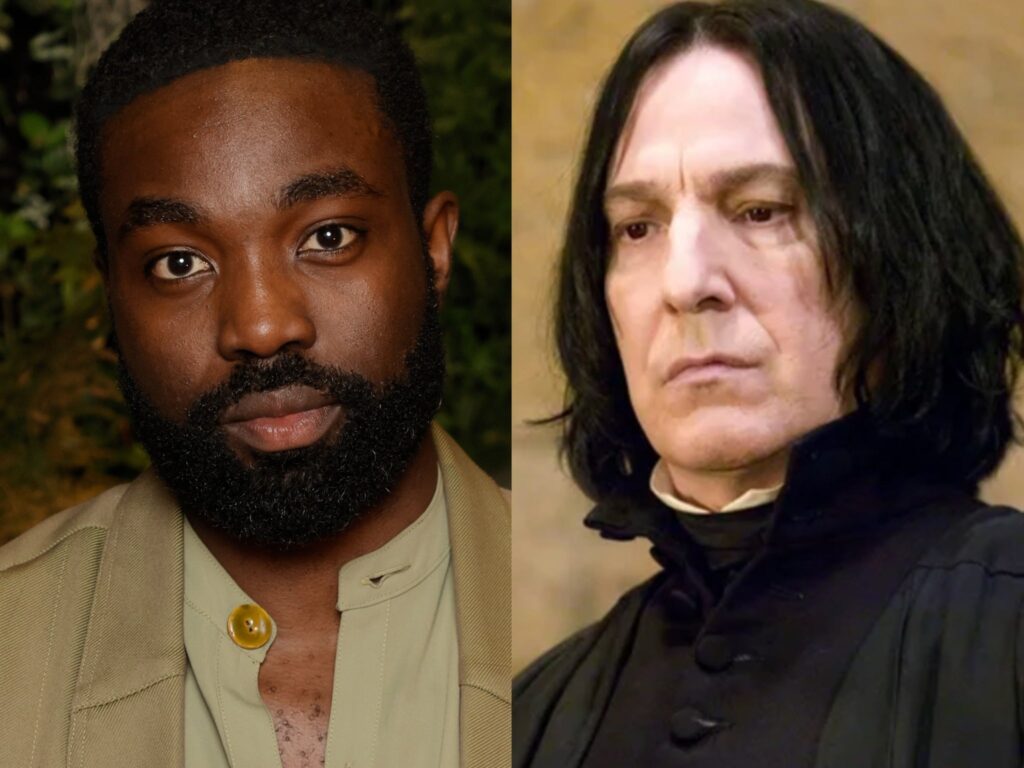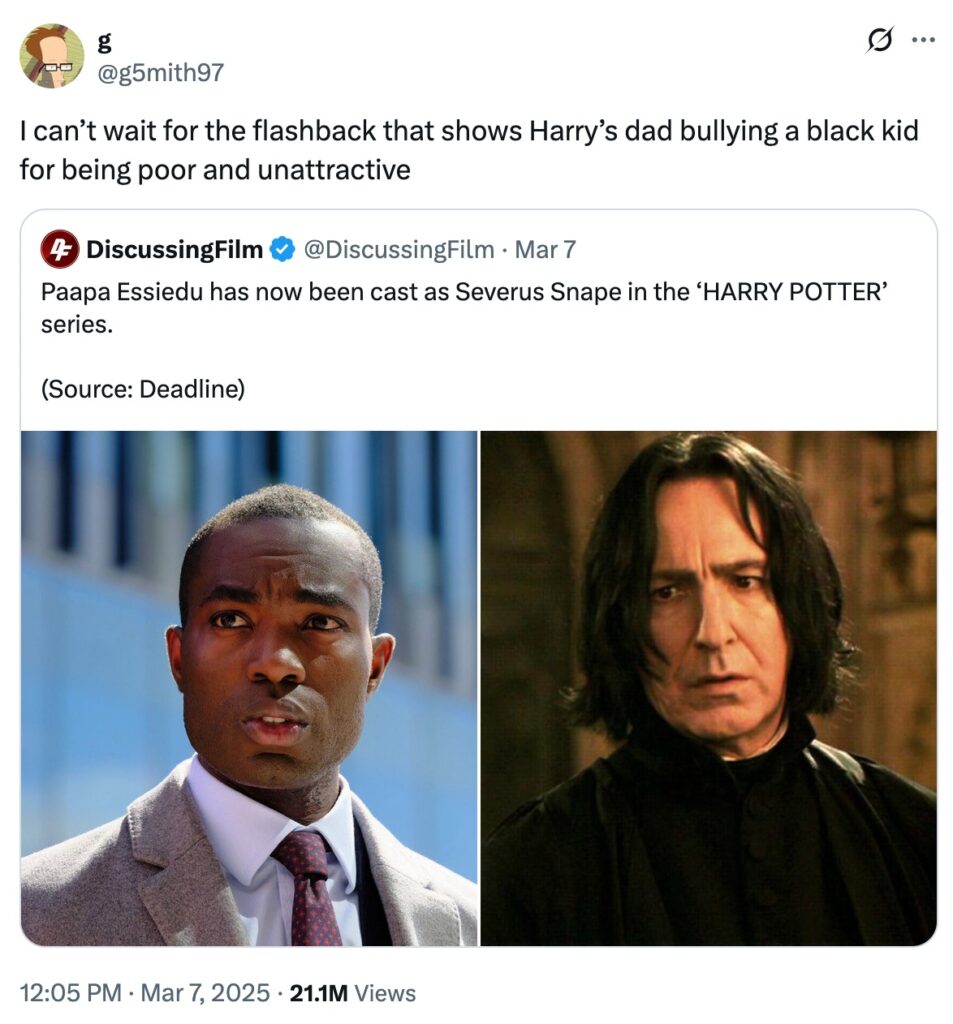The announcement of HBO’s forthcoming Harry Potter television series, set to reimagine J.K. Rowling’s beloved wizarding world, has ignited a firestorm of controversy. At the heart of the debate is the casting of a Black actor as Severus Snape, a character described in Rowling’s books as having “sallow skin,” “greasy black hair,” and a “hooked nose.” The decision has sparked accusations of “woke agenda” from fans and commentators, while others defend the casting as a bold and inclusive step forward. The clash has exposed deep divisions over representation, artistic license, and fidelity to source material in modern adaptations.
A Casting Choice That Shocked the Fandom

HBO’s Harry Potter series, slated for release in 2026, aims to adapt each of Rowling’s seven books into a season-long narrative, promising a “book-accurate” retelling. However, the recent reveal that Severus Snape, the complex and brooding potions master, will be portrayed by a Black actor has sent shockwaves through the global fanbase. Social media platforms, particularly X, have become battlegrounds for heated exchanges.
Posts on X capture the intensity of the backlash. One user wrote, “Snape is literally described as ‘greasy haired, sallow pale skin with a hooked nose’ and now he’s a handsome Black man? 🤣 This is ridiculous.” Another declared, “Hollywood will never learn. Snape is black now and the Harry Potter show just got killed in its crib.” Critics argue that the casting deviates from Rowling’s explicit descriptions, accusing HBO of prioritizing diversity over authenticity. The term “woke agenda” has been weaponized by detractors, framing the decision as a deliberate attempt to impose progressive ideals on a cherished franchise.
Yet, not all reactions have been negative. Supporters of the casting choice argue that it reflects a modern, inclusive approach to storytelling. “The wizarding world is for everyone,” one fan posted on X. “Casting a Black Snape doesn’t erase his character—it expands who can see themselves in this story.” Others point out that stage productions, such as Harry Potter and the Cursed Child, have successfully cast non-white actors in traditionally white roles, like Hermione Granger, without undermining the narrative.
Snape’s Character: A Sacred Cow?
Severus Snape, one of Rowling’s most iconic creations, is a polarizing figure. A former Death Eater turned double agent, his morally ambiguous journey and unrequited love for Lily Potter have cemented his status as a fan favorite. His physical appearance—pale, gaunt, and unkempt—is often seen as integral to his characterization, reflecting his tortured psyche and outsider status. For many fans, altering this image feels like a betrayal.
“Snape’s description isn’t just cosmetic,” says literary critic Emma Caldwell. “His sallow skin and greasy hair symbolize his isolation and inner turmoil. Changing his race risks diluting the subtext Rowling crafted.” Caldwell acknowledges the value of diverse casting but argues that Snape’s specific archetype—rooted in a very particular British cultural context—may not lend itself to such reinterpretation without losing nuance.
On the other hand, advocates for the casting argue that race is not central to Snape’s story. Dr. Aisha Thompson, a professor of media studies, notes, “Snape’s essence lies in his choices, his loyalties, and his pain—not in his skin tone. A Black actor can embody those truths just as powerfully.” Thompson points to successful race-blind casting in other franchises, such as Bridgerton, where diverse actors have reimagined historically white roles to critical acclaim.
The “Woke” Debate: A Cultural Flashpoint
The term “woke” has become a lightning rod in discussions about media representation. Originally rooted in social justice activism, it has been co-opted by critics to describe what they see as performative or heavy-handed diversity initiatives. The Snape casting controversy has reignited this debate, with detractors claiming HBO is pandering to progressive audiences at the expense of storytelling.

“HBO’s decision feels like a checkbox exercise,” says cultural commentator Mark Reynolds. “If they wanted more diversity, why not create new characters or elevate existing ones like Kingsley Shacklebolt? Race-swapping Snape seems like a lazy shortcut.” Reynolds argues that such moves alienate fans who value fidelity to the source material, risking the series’ commercial success.
However, HBO insiders defend the casting as a creative choice, not a political statement. An anonymous source close to the production told The Times, “The team chose the best actor for the role, period. This isn’t about quotas—it’s about bringing Snape to life in a way that resonates with today’s audience.” The source emphasized that the series will retain the “spirit” of Rowling’s books while embracing a broader vision of the wizarding world.
Rowling’s Silence and the Franchise’s Evolution
J.K. Rowling, who serves as an executive producer on the series, has remained conspicuously silent on the controversy. This is notable given her history of engaging with fans on contentious issues, including her polarizing views on gender identity. Some speculate that Rowling’s lack of comment signals tacit approval of the casting, while others believe she’s avoiding further scrutiny amid ongoing debates about her public persona.
The Harry Potter franchise has evolved significantly since the first book was published in 1997. What began as a quintessentially British story has grown into a global phenomenon, with fans from diverse backgrounds embracing its themes of courage, friendship, and redemption. This global reach has fueled calls for greater representation in adaptations, reflecting the franchise’s universal appeal.
“Rowling’s world is rooted in a specific time and place, but it’s also a fantasy,” says Thompson. “Magic doesn’t discriminate, so why should casting? A Black Snape could inspire a new generation of fans who see themselves in Hogwarts.”
The Broader Context: Representation in Media
The Snape controversy is part of a larger reckoning in the entertainment industry. Recent years have seen increased scrutiny of casting practices, with audiences demanding more authentic representation for marginalized groups. At the same time, adaptations of beloved properties—such as The Lord of the Rings or The Witcher—have faced backlash for diversifying casts in ways that some fans deem inconsistent with the source material.
Data from the UCLA Hollywood Diversity Report (2024) shows that while representation of Black actors in leading roles has increased by 15% since 2015, such roles often come with heightened scrutiny, particularly in adaptations of established franchises. The report also notes that diverse casting can boost viewership among younger, more multicultural audiences—a key demographic for HBO’s Harry Potter series.
Yet, the backlash against Snape’s casting highlights the challenges of balancing inclusion with fan expectations. “It’s a tightrope,” says Reynolds. “Studios want to appeal to new audiences without alienating the core fanbase. Get it wrong, and you lose both.”
The Fanbase Divided
The Harry Potter fandom, once a unified community, is now fractured. On one side are traditionalists who view Snape’s casting as a departure from canon, undermining the series’ authenticity. On the other are progressives who see it as a necessary evolution, reflecting the diversity of the modern world.

X posts reveal the emotional intensity of the divide. One user lamented, “They weren’t joking… they actually cast a Black guy to play Snape. This show is going to suck.” Another countered, “Taking Harry Potter, where most fans jumped ship years ago, and casting a Black Snape is a cruel setup. You’re just putting him in the line of fire.” The latter post suggests that the actor, whose identity has not been officially confirmed, may face undue scrutiny regardless of their performance.
Fan forums like Reddit’s r/HarryPotter have also erupted in debate. Some users argue that Snape’s bullying by James Potter, Harry’s father, could take on unintended racial connotations with a Black Snape, complicating the story’s dynamics. Others dismiss these concerns, insisting that skilled writing and acting can preserve the narrative’s integrity.
HBO’s Gamble: Risk or Reward?
HBO’s decision to cast a Black Snape is a high-stakes gamble. The network is betting that a fresh, inclusive approach will attract a new generation of viewers while retaining enough of the original magic to satisfy longtime fans. Early reactions suggest they face an uphill battle.
The series’ success will likely hinge on execution. If the casting is supported by nuanced writing and a compelling performance, it could silence critics and redefine Snape for a new era. If not, HBO risks alienating a passionate fanbase and tarnishing the Harry Potter legacy.
For now, the controversy shows no signs of abating. As one X user put it, “The whole country is shifting away from DEI & wokeness… HBO: ‘How about we make Snape Black?’” The sentiment encapsulates the challenge facing HBO: in a polarized cultural landscape, even a beloved franchise like Harry Potter cannot escape the fault lines of identity and representation.
Looking Ahead
As production on the Harry Potter series continues, all eyes will be on HBO’s next moves. Will they double down on their vision, or will fan backlash prompt a course correction? More broadly, the Snape controversy raises questions about the future of adaptations in an era of heightened cultural sensitivity. Can studios honor source material while reflecting the diversity of their audience?
For now, the wizarding world is at a crossroads. Whether HBO’s bold casting choice will be celebrated as a triumph of inclusivity or derided as a misstep remains to be seen. One thing is certain: Severus Snape, ever the enigma, has once again proven his power to provoke.





